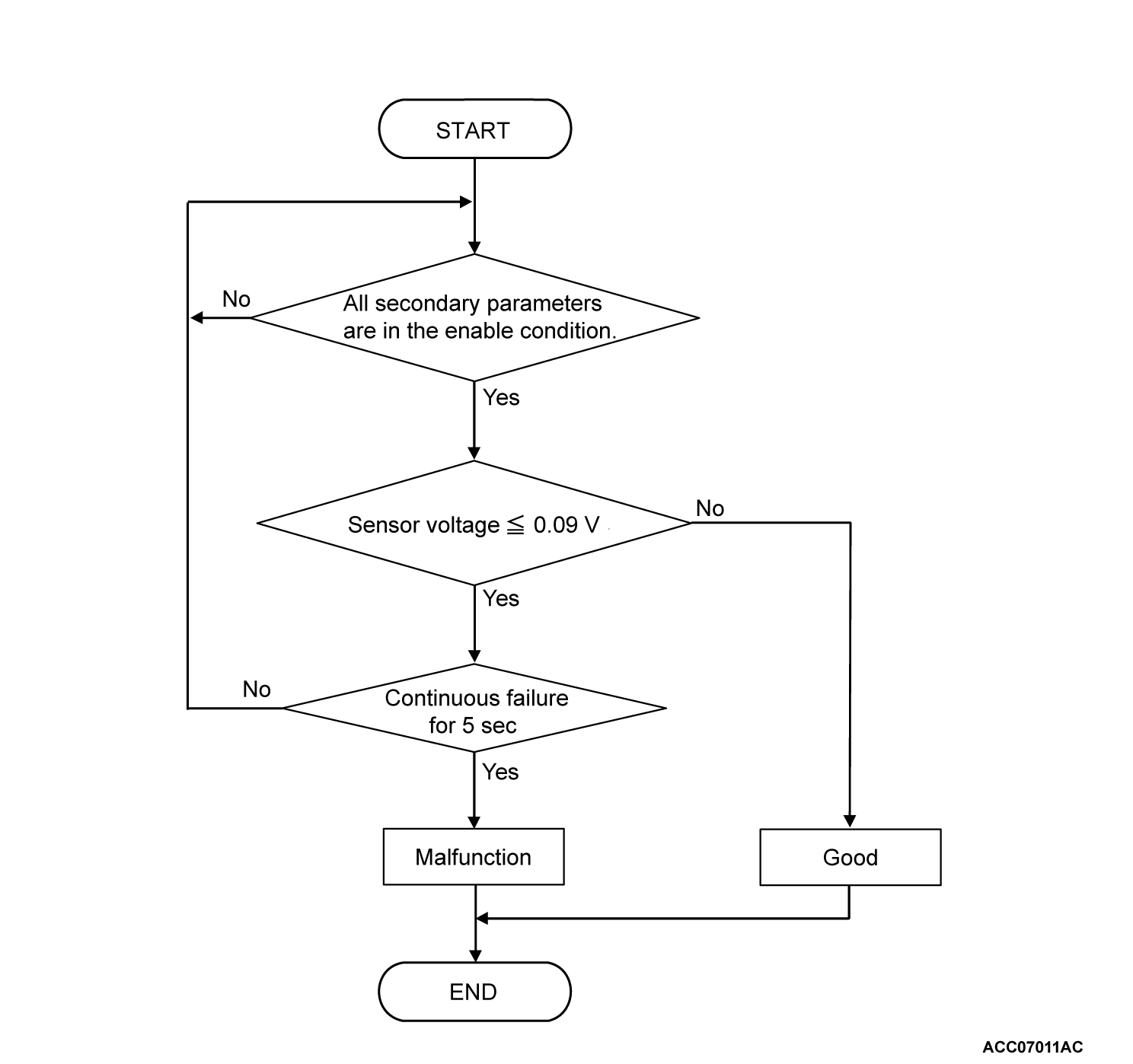DTC P0842: Malfunction of the Secondary Pressure Sensor (low input)
DIAGNOSTIC FUNCTION
The TCM determines that the system is defective when the secondary pressure sensor output voltage is lower than a predetermined value.
DESCRIPTIONS OF MONITOR METHODS
The secondary pressure sensor detects a voltage of 0.09 V or less for five seconds with the transmission fluid temperature more than -20°C (-4°F).
MONITOR EXECUTION
- Voltage of battery: 10 volts or more.
- Transmission fluid temperature: More than -20°C (-4°F).
MONITOR EXECUTION CONDITIONS (OTHER MONITOR AND SENSOR)
Other Monitor (There is no temporary DTC stored in memory for the item monitored below)
- P084A: Abnormality in primary pressure sensor function
- P0966, P0967: Malfunction of secondary pressure solenoid valve
Sensor (The sensor below is determined to be normal)
- Primary pressure sensor
DTC SET CONDITIONS
Check Conditions
- Voltage of battery: 10 volts or more.
- Transmission fluid temperature: More than -20°C (-4°F).
Judgment Criteria
- The secondary pressure sensor detects a voltage of 0.09 V or less for 5 seconds.
OBD-II DRIVE CYCLE PATTERN
Ignition switch: ON (start the engine and keep it for 10 seconds or more).
PROBABLE CAUSES
- Malfunction of the valve body assembly (Faulty secondary pressure sensor)
- Damaged wiring harness and connectors
- Malfunction of TCM
DIAGNOSIS
Required Special Tools
- MB992006: Extra fine probe
STEP 1. Voltage measurement at TCM connector (LPRS terminal).
(1) Drive the vehicle until the engine is warmed up.
(2) Measure the TCM connector side by backprobing.
(3) Selector lever position: N.
(4) Engine: Idling.
(5) Measure the voltage between the TCM connector (LPRS terminal) and body ground.
Is the voltage approximately 0.09 V or less?
STEP 2. Voltage measurement at CVT assembly connector (SSPW terminal).
(1) Disconnect the CVT assembly connector, and measure at the wiring harness side.
(2) Turn the ignition switch to the "ON" position.
(3) Measure the voltage between the CVT assembly connector (SSPW terminal) and body ground.
OK: approx. 5 V
Is the check result normal?
STEP 3. Check for open circuit or short to ground in SSPW line between the CVT assembly connector and the TCM connector.
STEP 4. Check for open circuit or short to ground in LPRS line between the CVT assembly connector and the TCM connector.
STEP 5. Check for open circuit in SGND line between the CVT assembly connector and the TCM connector.
STEP 6. Check for open circuit or short to ground in signal line between the CVT assembly connector and the valve body harness connector (secondary pressure sensor line).
STEP 7. Check for open circuit or short to ground in power supply line between the CVT assembly connector and the valve body harness connector (sensor power supply line).
STEP 8. Voltage measurement at TCM connector (LPRS terminal).
(1) Drive the vehicle until the engine is warmed up.
(2) Measure the TCM connector side by backprobing.
(3) Selector lever position: N.
(4) Engine: Idling.
(5) Measure the voltage between the TCM connector (LPRS terminal) and body ground.
OK: approx. 1.67 - 1.69 V
Is the check result normal?
![[Previous]](../../../buttons/fprev.png)
![[Next]](../../../buttons/fnext.png)



